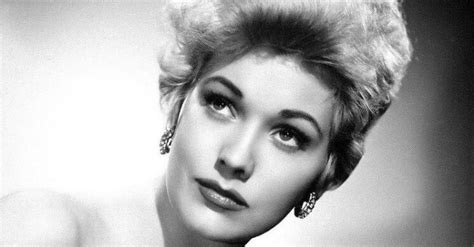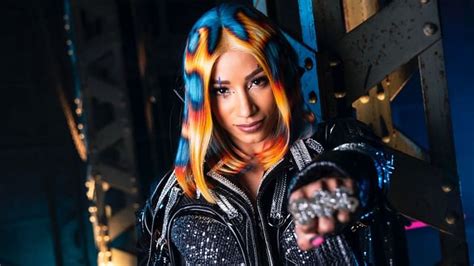
Former teen idol Molly Ringwald, now 56, best known for her roles in iconic 1980s films such as “Sixteen Candles,” “The Breakfast Club,” and “Pretty in Pink,” recently made a public appearance, showcasing a mature and sophisticated style that has garnered both praise and surprise from fans who remember her as the quintessential 80s movie star. Ringwald, who continues to act and write, attended the premiere of “Feud: Capote Vs. The Swans,“ in New York City, demonstrating a notable evolution in her personal style and image.
Molly Ringwald, who captured the hearts of teenagers across the globe with her portrayal of relatable, angst-ridden characters in John Hughes’s films, has seamlessly transitioned into a multifaceted career. Her recent appearance at the “Feud: Capote Vs. The Swans“ premiere has underscored her enduring relevance in the entertainment industry. Ringwald’s transformation reflects a natural evolution, both in her personal style and professional endeavors, as she navigates the complexities of aging gracefully in the public eye.
Ringwald’s recent public appearances and interviews reveal a woman comfortable in her own skin, who has successfully shed the skin of her teen image, and transitioned into more mature roles, showcasing her versatility as an actress. She has embraced new challenges, including writing and performing jazz music, thus demonstrating her artistic range and capabilities, further distancing herself from the teen archetype that once defined her career.
Ringwald’s enduring popularity stems not only from her memorable roles but also from her ability to remain relatable and authentic throughout her career. While her “Brat Pack” days are long behind her, Ringwald’s recent sightings serve as a reminder of her significant impact on pop culture and her continuing presence in the entertainment world.
Early Career and Brat Pack Fame:
Molly Ringwald’s career began long before her iconic teen roles. Born in Roseville, California, she started acting at a young age, appearing in stage productions and television shows. However, it was her collaboration with director John Hughes that catapulted her to stardom. “Sixteen Candles” (1984), where she played Samantha Baker, a teenager whose sixteenth birthday is forgotten by her family, established Ringwald as a relatable and empathetic on-screen presence. The film resonated with teenagers experiencing similar anxieties and insecurities, making Ringwald a household name.
Following the success of “Sixteen Candles,” Ringwald starred in “The Breakfast Club” (1985), playing Claire Standish, the “princess” of Shermer High School. The film, which explores the social dynamics and emotional vulnerabilities of a group of teenagers in detention, solidified Ringwald’s status as a teen idol. Her portrayal of Claire, who learns to break free from societal expectations and connect with her peers, remains one of her most iconic roles.
“Pretty in Pink” (1986), another collaboration with John Hughes (who served as a writer and producer, while Howard Deutch directed), further cemented Ringwald’s image as a champion of the underdog. In the film, she played Andie Walsh, a poor but fashionable high school student who falls in love with a wealthy classmate. “Pretty in Pink” is celebrated for its themes of social class, identity, and self-acceptance, and Ringwald’s performance as Andie is widely regarded as one of her best.
The term “Brat Pack,” coined by a New York Magazine article in 1985, grouped Ringwald with other young actors who frequently appeared in teen films during the 1980s, including Emilio Estevez, Anthony Michael Hall, Judd Nelson, Ally Sheedy, and Demi Moore. While the label brought them considerable attention, it also pigeonholed them and created a sense of rivalry among them. Despite the drawbacks, the “Brat Pack” films remain iconic snapshots of 1980s teen culture, and Ringwald is forever associated with this era of filmmaking.
Transitioning Beyond Teen Roles:
As Ringwald entered her twenties, she sought to break free from the teen movie archetype and explore more diverse and challenging roles. She moved to Paris in the late 1980s, immersing herself in French culture and appearing in several French films, including “Le Palace” (1985) and “Betsy’s Wedding” (1990). This move marked a conscious effort to distance herself from her “Brat Pack” image and establish herself as a versatile actress.
Upon her return to the United States, Ringwald continued to work in film and television, taking on roles that showcased her range and maturity. She appeared in films such as “Something to Live for: The Alison Gertz Story” (1992), a television movie based on the true story of a young woman who contracted AIDS, and “Office Killer” (1997), a dark comedy directed by Cindy Sherman. These roles demonstrated Ringwald’s willingness to take on unconventional and challenging projects.
In the 2000s and 2010s, Ringwald continued to work steadily in television, appearing in series such as “The Secret Life of the American Teenager,” where she played the mother of the main character, and “Raising Expectations,” a Canadian sitcom. These roles allowed her to showcase her comedic talents and connect with a new generation of audiences.
Writing and Other Creative Pursuits:
In addition to her acting career, Molly Ringwald is also a successful writer. In 2010, she published her first book, “Getting the Pretty Back: Friendship, Family, and Finding the Perfect Lipstick,” a memoir that explores her personal experiences with beauty, fashion, and relationships. The book was praised for its honesty, humor, and insightful observations on the challenges and rewards of being a woman.
In 2012, Ringwald published her second book, “When It Happens to You: A Novel in Stories,” a collection of interconnected short stories that explore the complexities of marriage, infidelity, and forgiveness. The book was well-received by critics and readers alike, who praised Ringwald’s writing style and her ability to create relatable and compelling characters.
Ringwald has also pursued her passion for music, releasing a jazz album titled “Except Sometimes” in 2013. The album features her interpretations of classic jazz standards, showcasing her vocal talents and her deep appreciation for the genre. Ringwald has performed her music at various venues across the country, further demonstrating her artistic versatility.
Recent Projects and Public Appearances:
Molly Ringwald continues to be an active and engaged member of the entertainment industry. In recent years, she has appeared in television series such as “Riverdale,” where she plays Mary Andrews, the mother of Archie Andrews, and “The Bear,” a critically acclaimed comedy-drama series. Her role in “The Bear” has garnered her widespread praise, with critics noting her nuanced performance and her ability to seamlessly blend into the ensemble cast.
Ringwald’s appearance at the “Feud: Capote Vs. The Swans“ premiere in New York City further underscores her enduring relevance in the entertainment industry. Her sophisticated and stylish look has been widely praised, with many commenting on her graceful aging and her ability to remain fashionable and contemporary.
Ringwald’s transition from teen idol to respected actress, writer, and musician is a testament to her talent, versatility, and determination. She has successfully navigated the challenges of aging in the public eye, embracing new opportunities and reinventing herself along the way. Her enduring popularity and her continued success serve as an inspiration to aspiring artists and a reminder of the lasting impact of her work.
Impact on Pop Culture and Legacy:
Molly Ringwald’s impact on pop culture extends far beyond her iconic roles in 1980s teen films. She helped to define a generation of teenagers, capturing their anxieties, aspirations, and struggles with authenticity and empathy. Her characters, such as Samantha Baker, Claire Standish, and Andie Walsh, resonated with audiences because they were relatable, flawed, and ultimately triumphant.
Ringwald’s films also challenged societal norms and conventions, exploring issues such as social class, gender roles, and identity. “Pretty in Pink,” for example, questioned the traditional fairy tale narrative by portraying a working-class girl who falls in love with a wealthy boy, challenging the notion that social class should dictate romantic relationships. “The Breakfast Club” broke down stereotypes by showing that people from different social groups can find common ground and connect on a deeper level.
Ringwald’s influence can be seen in countless films, television shows, and other forms of media that have drawn inspiration from her work. Her characters have served as templates for countless teenage protagonists, and her films have helped to shape the way teenagers are portrayed on screen.
Molly Ringwald’s legacy is one of talent, versatility, and authenticity. She has proven that it is possible to evolve and reinvent oneself while remaining true to one’s values and passions. Her work continues to inspire and entertain audiences of all ages, and her contributions to pop culture will be remembered for generations to come.
Quotes from Molly Ringwald:
- “I think that the reason why those movies resonated so much with people is because they were really honest. They weren’t trying to be something that they weren’t.”
- “I’ve always been interested in telling stories, whether it’s through acting or writing or music.”
- “I think it’s important to embrace aging and to not try to fight it. I think that’s when you start to look really strange.”
- “I’m really proud of the work that I’ve done, and I’m excited about what’s to come.”
- “The Breakfast Club was such a magical experience. It’s something that I’ll always cherish.”
Analysis of Ringwald’s Transformation:
Molly Ringwald’s transformation is not merely a physical one but a reflection of her growth as an individual and an artist. Her early roles in teen films defined her as a symbol of youthful rebellion and vulnerability. As she matured, she consciously sought out roles that challenged her and allowed her to explore different facets of her personality.
Her move to Paris was a pivotal moment in her career, allowing her to escape the confines of Hollywood and immerse herself in a new culture. This experience broadened her horizons and helped her to develop a more sophisticated and nuanced understanding of the world.
Ringwald’s foray into writing and music further demonstrates her desire to express herself creatively and to connect with audiences on a deeper level. Her books and albums reveal her intelligence, wit, and vulnerability, showcasing her as a multifaceted artist.
Her recent public appearances reflect her confidence and self-assurance. She has embraced her age and her evolving style, demonstrating that it is possible to age gracefully and remain relevant in the entertainment industry.
Molly Ringwald’s transformation is a testament to her resilience, her talent, and her unwavering commitment to her craft. She has successfully navigated the challenges of fame and aging, emerging as a respected actress, writer, and musician. Her journey serves as an inspiration to aspiring artists and a reminder that it is possible to reinvent oneself and achieve success on one’s own terms.
Frequently Asked Questions (FAQ):
-
What is Molly Ringwald best known for?
Molly Ringwald is best known for her iconic roles in 1980s teen films such as “Sixteen Candles” (1984), “The Breakfast Club” (1985), and “Pretty in Pink” (1986). These films, directed by John Hughes, helped to define a generation of teenagers and established Ringwald as a teen idol. She also well known for roles as Mary Andrews in Riverdale and recently The Bear.
-
What is the “Brat Pack,” and how is Molly Ringwald associated with it?
The “Brat Pack” was a term coined by a New York Magazine article in 1985 to describe a group of young actors who frequently appeared in teen films during the 1980s. Molly Ringwald was considered a prominent member of the “Brat Pack,” along with actors such as Emilio Estevez, Anthony Michael Hall, Judd Nelson, Ally Sheedy, and Demi Moore. While the label brought them considerable attention, it also pigeonholed them and created a sense of rivalry among them.
-
What has Molly Ringwald done since her teen movie fame?
Since her teen movie fame, Molly Ringwald has transitioned into a multifaceted career, working as an actress, writer, and musician. She has appeared in numerous films and television shows, including “The Secret Life of the American Teenager,” “Riverdale,” and “The Bear.” She has also written two books, “Getting the Pretty Back: Friendship, Family, and Finding the Perfect Lipstick” and “When It Happens to You: A Novel in Stories,” and released a jazz album titled “Except Sometimes.”
-
Why did Molly Ringwald move to Paris in the late 1980s?
Molly Ringwald moved to Paris in the late 1980s to break free from the teen movie archetype and explore more diverse and challenging roles. She immersed herself in French culture and appeared in several French films. This move marked a conscious effort to distance herself from her “Brat Pack” image and establish herself as a versatile actress.
-
What is Molly Ringwald doing currently?
Currently, Molly Ringwald continues to be an active and engaged member of the entertainment industry. She recently appeared in the premiere of Feud: Capote Vs. The Swans, she has appeared in television series such as “Riverdale,” and “The Bear,” a critically acclaimed comedy-drama series. She is also involved in writing and music projects, showcasing her versatility as an artist. She has been praised for her ability to reinvent herself and remain relevant in the entertainment industry.
Further Background on John Hughes:
John Hughes was an American filmmaker who rose to prominence in the 1980s as a writer, director, and producer of teen-oriented comedies. His films, including “Sixteen Candles,” “The Breakfast Club,” and “Pretty in Pink,” captured the anxieties, aspirations, and struggles of teenagers with authenticity and empathy. Hughes’s films are celebrated for their relatable characters, witty dialogue, and exploration of social issues.
Hughes’s collaboration with Molly Ringwald was particularly fruitful, as she became his muse and leading lady in several of his most iconic films. Ringwald’s ability to embody Hughes’s characters with nuance and vulnerability helped to solidify his reputation as a master of the teen genre.
Hughes’s influence on pop culture is undeniable, as his films have inspired countless filmmakers and writers. His characters and storylines have become ingrained in the cultural consciousness, and his work continues to resonate with audiences of all ages.
Detailed Look at “Sixteen Candles,” “The Breakfast Club,” and “Pretty in Pink”:
- “Sixteen Candles” (1984): This film follows the story of Samantha Baker, a teenager whose sixteenth birthday is forgotten by her family due to her older sister’s wedding. Samantha navigates the complexities of high school, dealing with unrequited love, embarrassing family situations, and the challenges of growing up. The film is celebrated for its humor, its relatable characters, and its portrayal of the awkwardness of adolescence. However, it has also been criticized for its problematic depiction of Asian characters and its casual treatment of sexual harassment.
- “The Breakfast Club” (1985): This film tells the story of five high school students from different social groups who are forced to spend a Saturday in detention together. As they spend the day together, they begin to break down stereotypes and connect on a deeper level, revealing their vulnerabilities and shared experiences. The film is celebrated for its insightful exploration of social dynamics, its memorable characters, and its message of acceptance and understanding.
- “Pretty in Pink” (1986): This film follows the story of Andie Walsh, a poor but fashionable high school student who falls in love with a wealthy classmate. Andie must navigate the social pressures and prejudices of her peers, as well as the disapproval of her friends and family. The film is celebrated for its themes of social class, identity, and self-acceptance, and its portrayal of a strong and independent female protagonist. The film’s soundtrack, featuring artists such as The Psychedelic Furs, New Order, and Orchestral Manoeuvres in the Dark, is also considered a classic of the 1980s.
The Significance of Ringwald’s Transition to Mature Roles:
Molly Ringwald’s transition from teen roles to more mature roles is significant for several reasons. First, it demonstrates her versatility as an actress and her ability to take on challenging and diverse characters. Second, it challenges the notion that actresses must remain youthful and maintain a certain image in order to remain successful in Hollywood. Third, it provides a positive example of aging gracefully and embracing the changes that come with age.
Ringwald’s decision to take on roles that reflect her own age and experiences is a testament to her authenticity and her commitment to her craft. She has shown that it is possible to evolve and reinvent oneself while remaining true to one’s values and passions. Her journey serves as an inspiration to aspiring artists and a reminder that it is possible to achieve success on one’s own terms.
Conclusion:
Molly Ringwald’s recent public appearance has sparked renewed interest in her career and her legacy. Her transformation from teen idol to respected actress, writer, and musician is a testament to her talent, versatility, and determination. She has successfully navigated the challenges of aging in the public eye, embracing new opportunities and reinventing herself along the way. Her enduring popularity and her continued success serve as an inspiration to aspiring artists and a reminder of the lasting impact of her work. Her continued presence in the entertainment industry demonstrates her commitment to her craft and her ability to connect with audiences of all ages. Her most recent attendance at the Feud: Capote Vs. The Swans premiere is just one more indicator of her long-standing contributions to the industry and how she has managed to evolve, remaining current and relatable, all while holding onto her iconic origins.









